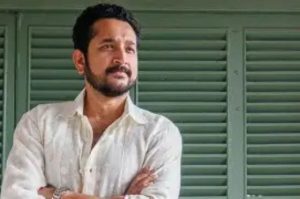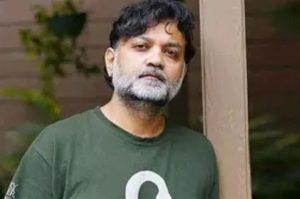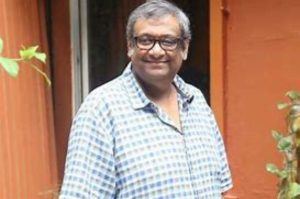Bengali Film Industry — A bureaucratic reference by Delhi Police referring to Bengali as a “Bangladeshi language” has spiraled into a full-blown political and cultural storm, drawing sharp responses not just from West Bengal’s political leadership but also from the heart of its celebrated Bengali film industry.
The notice, seeking translators for the “Bangladeshi language” in an ongoing probe involving alleged illegal immigrants, was interpreted as an affront to the linguistic and cultural identity of the Bengali-speaking population. The timing, tone, and phrasing have infuriated both the ruling Trinamool Congress and a broad cross-section of Bengal’s intelligentsia.
Leading the charge was the Bengali film fraternity, known for its powerful voice on social issues. Eminent actors, filmmakers, and musicians took to social media and public forums to register their outrage, calling the remark deeply ignorant, constitutionally offensive, and a dangerous precedent.
Prosenjit, Parambrata, and the Power of Culture



Veteran actor Prosenjit Chatterjee was among the first to respond. “Our language is our pride,” he posted on X. “Bangla is the identity of our state. Those who try to insult it are attacking the soul of Bengal.”
Parambrata Chattopadhyay, actor-director known for roles in both Tollywood and Bollywood, emphasized that Bengali is more than a language—it’s an emotional and cultural lifeline for millions. “Dialects may vary. But it’s one language, our language, our mother tongue—Bangla. It’s what we grew up speaking, dreaming, thinking in.”
Srijit Mukherji’s Blunt Response
Filmmaker Srijit Mukherji, never one to mince words, expressed his anger online. “That’s not Bangladeshi language, morons, that’s Bangla or Bengali—the same language in which your national anthem was originally written,” he wrote, referring to Rabindranath Tagore’s Jana Gana Mana, composed in Bengali.


Mukherji later added that the film industry was not going to sit silently when a recognized Indian language was demeaned. “This is a constitutional insult. Bangla is one of India’s 22 scheduled languages. What kind of ignorance is this?”
Kaushik Ganguly and Industry-Wide Backlash
National Award-winning director Kaushik Ganguly questioned the bureaucratic logic behind such terminology. “I never knew there was any ‘text’ in the Bangladeshi language. It’s like calling Hindi a ‘Pakistani language’ just because it’s spoken across the border,” he said.


Several other artists, including musicians and theatre veterans, expressed solidarity. Many pointed out that regardless of geographical borders, Bengali remains a shared language between the Indian state of West Bengal and neighboring Bangladesh—without diminishing its official status in India.
Bengali Film Industry: Mamata Banerjee Steps In
Chief Minister Mamata Banerjee accused the BJP of weaponizing language and “waging a cultural war” against Bengalis. She called the reference to Bengali as “Bangladeshi” unconstitutional, unpatriotic, and deeply offensive.
Banerjee said this was not a one-off incident but part of a larger pattern of Bengali speakers—especially migrant workers—being targeted, harassed, and profiled in BJP-ruled states. She cited recent incidents where Bengali-speaking Indian citizens were detained and accused of being illegal immigrants despite carrying valid documents.
Bhasha Andolan: A New Movement Emerges
The language controversy has given birth to a new front in Bengal’s long history of linguistic pride—Bhasha Andolan (Language Movement). The state government, in collaboration with cultural icons and grassroots organizations, is planning events, awareness campaigns, and rallies to assert Bengali’s place in India’s linguistic and constitutional framework.
The phrase “Bangla amader garbo” (Bengali is our pride) has become a unifying slogan across campuses, studios, and streets in Kolkata and other parts of the state.
Delhi Police Clarifies, BJP Defends
Following the outrage, Delhi Police issued a clarification stating that their use of the term “Bangladeshi language” referred to specific dialects used by undocumented immigrants from across the border, not the Bengali language as spoken in West Bengal.
The BJP, both at the state and central levels, doubled down on that explanation. Party spokespersons accused the TMC of politicizing a technical detail for electoral gain.
Amit Malviya, BJP IT cell head, said, “The word ‘Bangla’ covers a wide range of dialects, some of which are unintelligible to even Indian Bengalis. Our concern was about effective interpretation in a sensitive investigation, not about disrespecting anyone’s language.”
However, critics argue that the attempt to justify such terminology only further exposes the cultural disconnect between Delhi’s administration and Bengal’s ethos.
Beyond Politics: The Cultural Identity Debate
At the heart of this controversy lies a much deeper debate—about identity, federalism, and cultural representation. Bengal, with its legacy of Renaissance thinkers, Nobel laureates, and global literary icons, has long asserted its cultural uniqueness within India.
For the Bengali film industry, this was more than a headline—it was an existential issue. Language, after all, is the primary medium through which films are made, stories are told, and identities are forged. The idea that their language could be reduced to a borderland dialect was seen as a direct blow to their heritage.
Industry Unites Across Generations
The outrage wasn’t limited to a single generation. Young actors like Ritwick Chakraborty, Anirban Bhattacharya, and Ishaa Saha joined hands with veterans like Mamata Shankar and Soumitra Chatterjee’s family, asserting their linguistic and artistic rights.
From WhatsApp forwards to panel discussions on Bengali news channels, the controversy has sparked public discourse across the state. Schools and colleges are also participating in “Bangla Utsav”—language festivals initiated in response to the controversy.
What’s at Stake?
With elections approaching, political analysts believe this issue may have a lasting impact on voter sentiment, especially among urban youth and rural cultural communities.
Observers also note that the incident has brought to the forefront a larger question: How should India—as a federal, multicultural democracy—treat linguistic diversity?
While Hindi and English dominate administrative and media spaces, regional languages like Bengali continue to battle for equal dignity and representation. This incident, though administrative on paper, has reignited a collective consciousness in Bengal around this very issue.
A Cultural Turning Point
In a state where language once drove student protests, toppled political regimes, and inspired cinema, this controversy might just be a cultural turning point. As Tollywood mobilizes, political rhetoric escalates, and public sentiment swells, Bengal seems ready to reaffirm that Bangla is not just a language—it is an emotion, a legacy, and an assertion of pride.
For Further Reading:
- Constitution of India – Eighth Schedule (Languages Recognized)
- Rabindranath Tagore’s ‘Jana Gana Mana’ – Background and Lyrics
- Census of India – Language Data (2011)
- UNESCO Atlas of World Languages – Bengali
Also read: Home | Channel 6 Network – Latest News, Breaking Updates: Politics, Business, Tech & More

